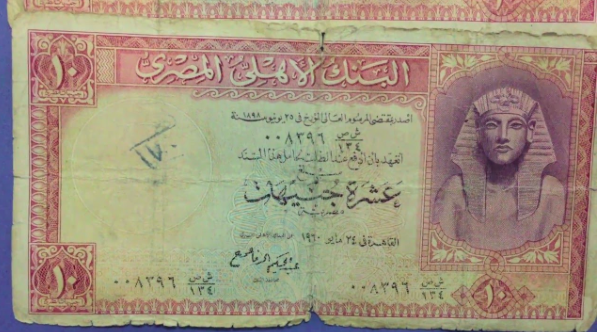By Mohamed Karrem

Slums develop
The era of big promises, unplanned decisions, and revolutionary changes in the military junta. It all started with a dream of bringing the land and rights to the Egyptians, therefore the new regime focused its full attention on expanding the state’s investments, using them to develop the infrastructure and providing social services for those who deserve it. That has led to the laws regarding the reform elaborated in September 1952 which, limited private property to the agricultural land at 200 acres and Nationalising the biggest holding in Egypt. This ontributed to form the middle class with the power of empowerment thus, Nasser’s regime offered the clearest way to extend its authority over the whole economy. The government’s vision at this time consisted of using the agricultural sector as resource-based industrialization, simply the government wanted to transform the country from an agricultural society to industrial power, which caused migrants to bandwagon to Cairo.
Can this answer your questions, How & when did the slums develop?

The golden pound
The main feature of this period was that of the first time in its long history, the Egyptian economy was based on economic and social development planning as a method of macroeconomic management. Gamal Abdel Nasser was about to put Egypt on the world map, but no one can change everything at once by taking all those critical decisions as a bulk.
In conclusion, the increasing state’s intervention in economic life, the public sector’s developing against the private sector, the agricultural sector’s subordination to the industrial one, old production equipment, the errors made in the foreign policy were critical policy errors with negative consequences on the long term. These financing methods aggravated the situation in the economy, having side effects materializing in the 20% depreciation of national currency for the first time in 1962 and in Egypt’s failure to pay its external debts in 1965. This is why the Central Bank of Egypt had to sell gold from reserves, worth 6.57 million British pounds, which determined the Egyptian pound and dropping it to 43% in world markets (Issawi, C,1963). All these circumstances were a good indicator that began to unveil the next period, known as the war economy period.

The war economy period (1966-1973)
The Egyptian economy was oriented in the direction of fulfilling military objectives, and the state services’ sector has grown in this period, especially the military services, that absorbed a great volume of personnel, but the consequences of the war were exactly like how you imagined it. This personnel was made redundant, producing a significant growth of the unemployed rate. Nothing could describe this era better than the Egyptians themselves who expressed their surrendering and suffering in one word ‘Al Naksa’.
You might be asking why people authorized Nasser to take back the leadership, but if you looked from a different angle you will figure out why gen Xers are taking a largely emotional decision based on big promises with little actions. You can blame the regime regarding this misbehave because they gave the people a fish without teaching them how to fish.

The “Open Door” policy or the consumption phase (1974 – 1981)
During the 70s, Egypt founded the economic policy known as the “open door” policy “El-Infitah” and this is explained, in terms of laws and normative acts that have been elaborated in order to attract Arabian and foreign capitals, as well as encouraging private capital to have an active role in developing the national economy while keeping the leadership role of the public sector. Undeniably, the Egyptians’ markets had no potential to compete with the foreign penetration, and by the time they witnessed the end of the Egyptian brand and many crafts which completely changed the social class structure.
During the Sadat era, Egyptian society underwent third-social change. The society morphed into three classes: the growing top rung of capitalists, the declining middle class and the continuously deteriorated lower levels, therefore, the Muslim Brotherhood took advantage of this situation and provided the middle and lower classes with many services and different kinds of subsidies, which explains why most of generation X from the middle and lower classes are convinced that they were born into religion.



